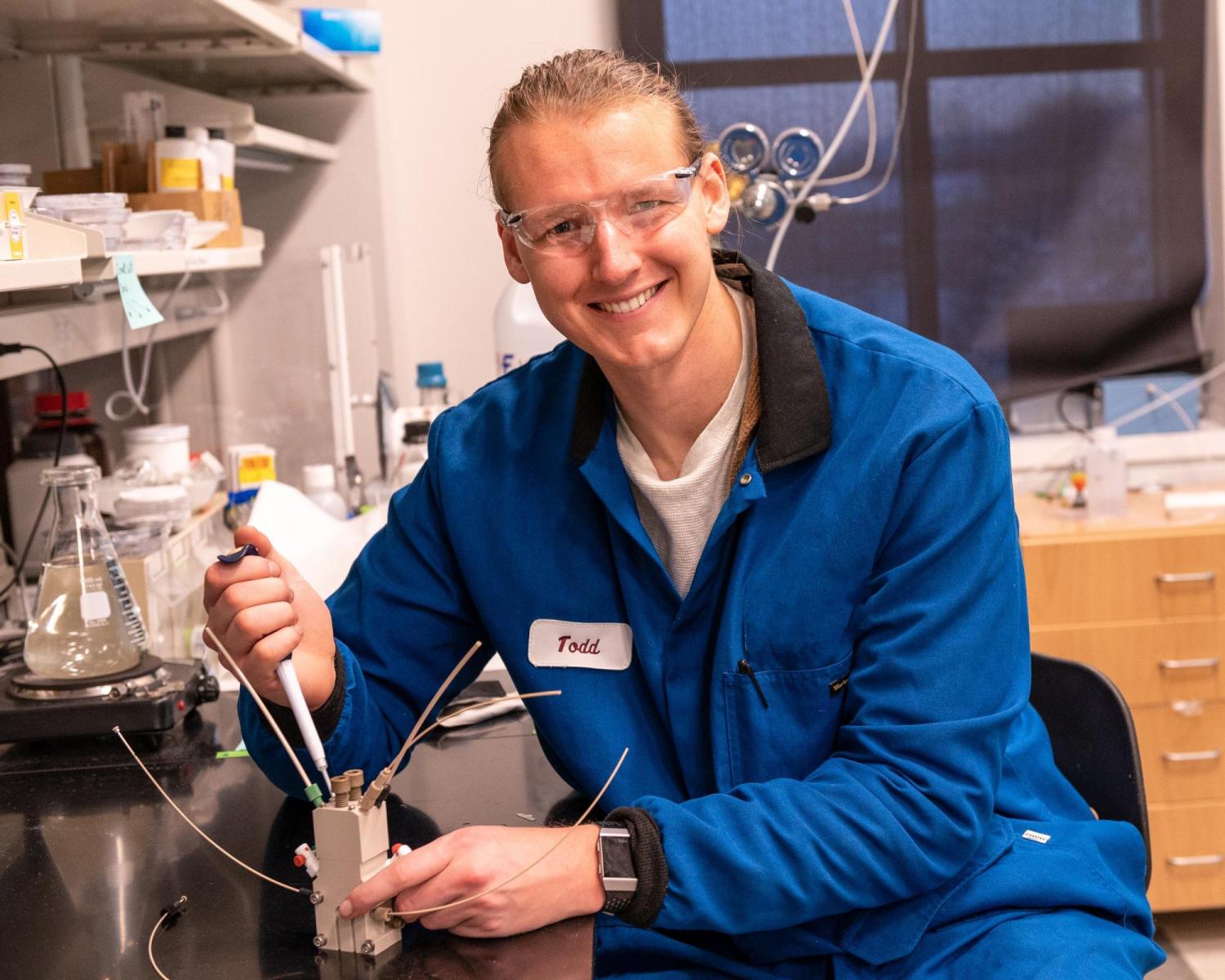Whittaker wins Graduate and Professional Student Government Outstanding Research Assistant Award

Todd Whittaker
Todd Whittaker, a first-year PhD candidate in the Holewinski and Musgrave groups, is the Graduate and Professional Student Government Outstanding Research Assistant Award winner for 2021.
The award recognizes outstanding research assistants who demonstrate outstanding mentorship and collaboration, commitments to research, scholarship and learning growth, and have a compelling research philosophy.
“I feel very humbled to receive this award, as I'm sure that there are many other deserving students at CU Boulder,” Whittaker said. “Starting graduate school during the COVID-19 pandemic has been challenging for many reasons, but one of the most challenging aspects has been the inability to interact with all of my peers and learn about the fantastic research they are conducting. I hope that I can have more of these opportunities in the future because I thoroughly believe in the benefits of interacting with a diverse set of ideas and people.”
Professor Charles Musgrave, one of Whittaker’s advisers, wrote a letter of support for the award nomination.
“Despite the quantum chemical modeling methods course being taught remotely, it was clear that Todd was among the strongest and most engaged students in our very large PhD class,” Musgrave said. “He would ask many insightful and advanced questions that showed his excellent communication skills.”
Whittaker also stood out because of his proactive interactions with his fellow students. When others asked questions, he would quickly jump in to answer, acting as if he were an unofficial teaching assistant.
“He immediately stood out for being intellectually curious, knowledgeable, enthusiastic and fully engaged with the material being taught,” Musgrave said. It was these qualities that led Musgrave to recruit Whittaker into his research group.
Whittaker’s research concerns experimental and computational electrochemistry, with diverse technological applications, including the electric vehicle market and chemical manufacturing industry. He hopes to identify efficient catalytic materials for electrochemical reactions through steady-state reaction kinetics, operando spectroscopy and quantum chemical simulations for materials testing.
“My hope is that this research will improve the methods researchers use to evaluate electrochemical materials and will eventually lead to the design of next generation technologies to mitigate the effects of global climate change,” he said.

